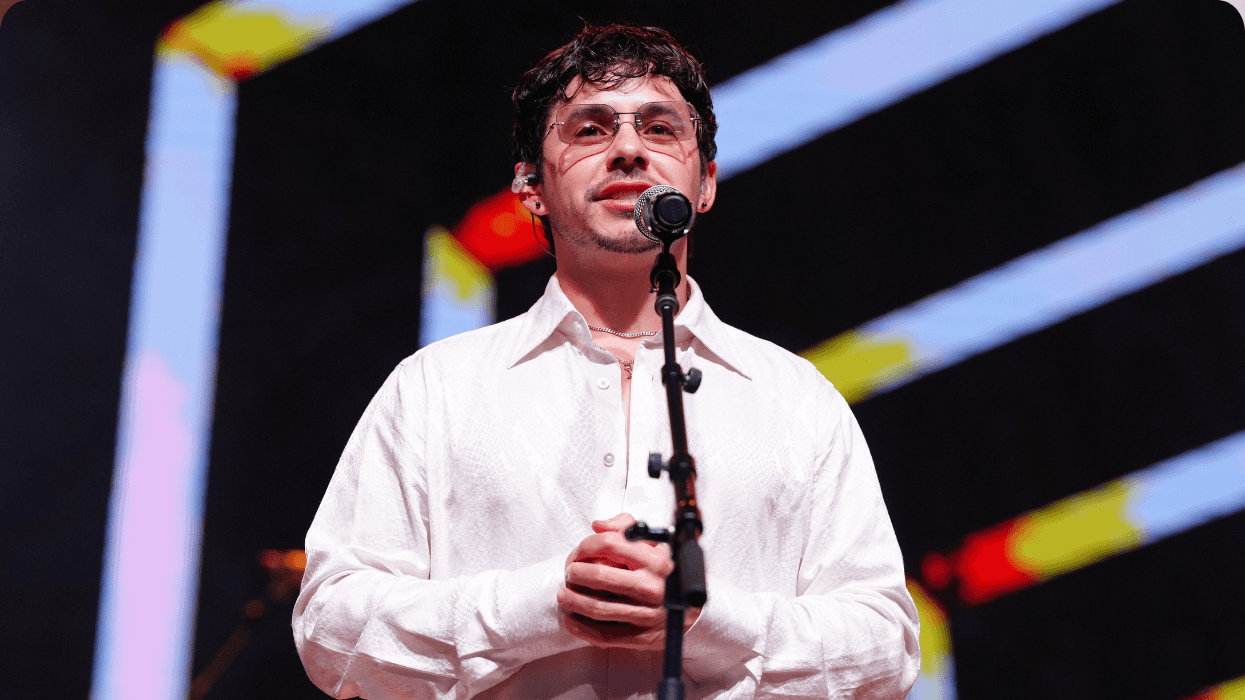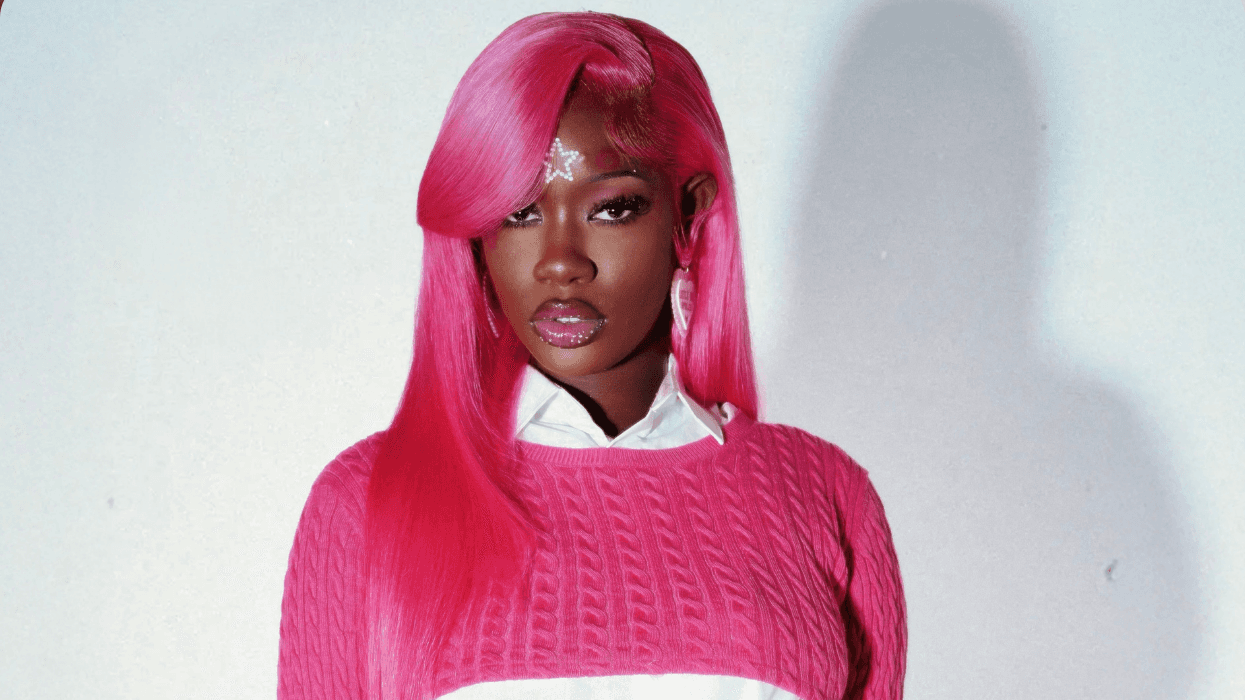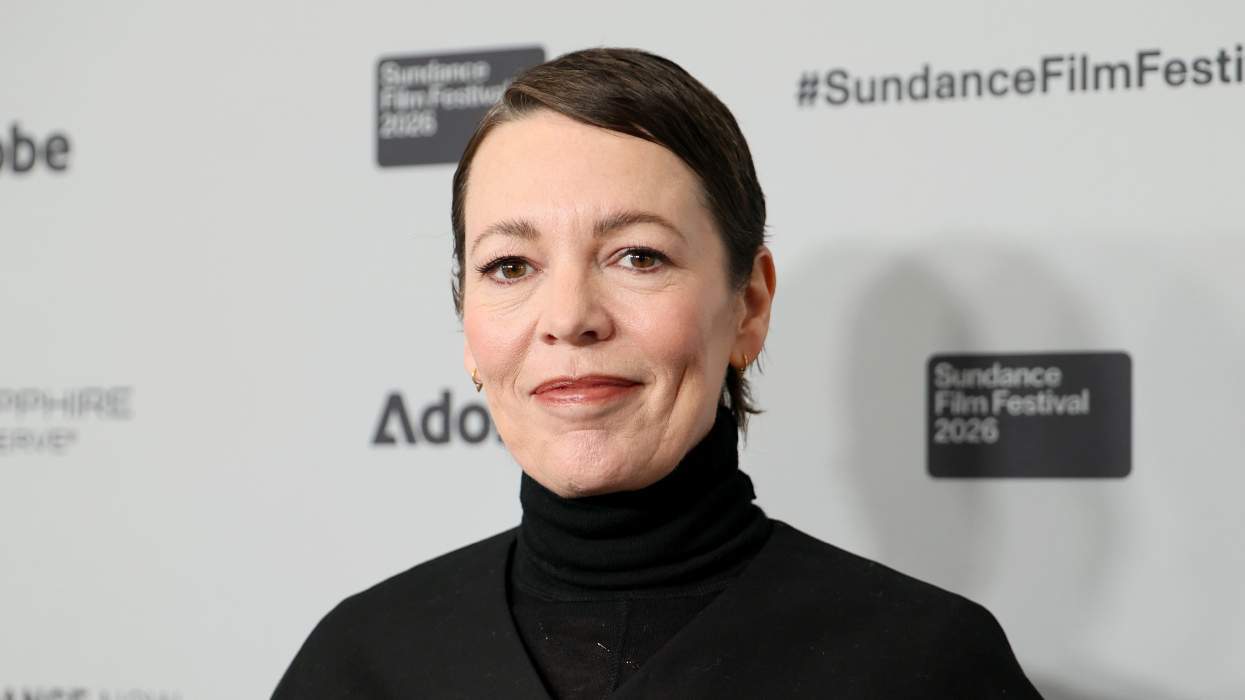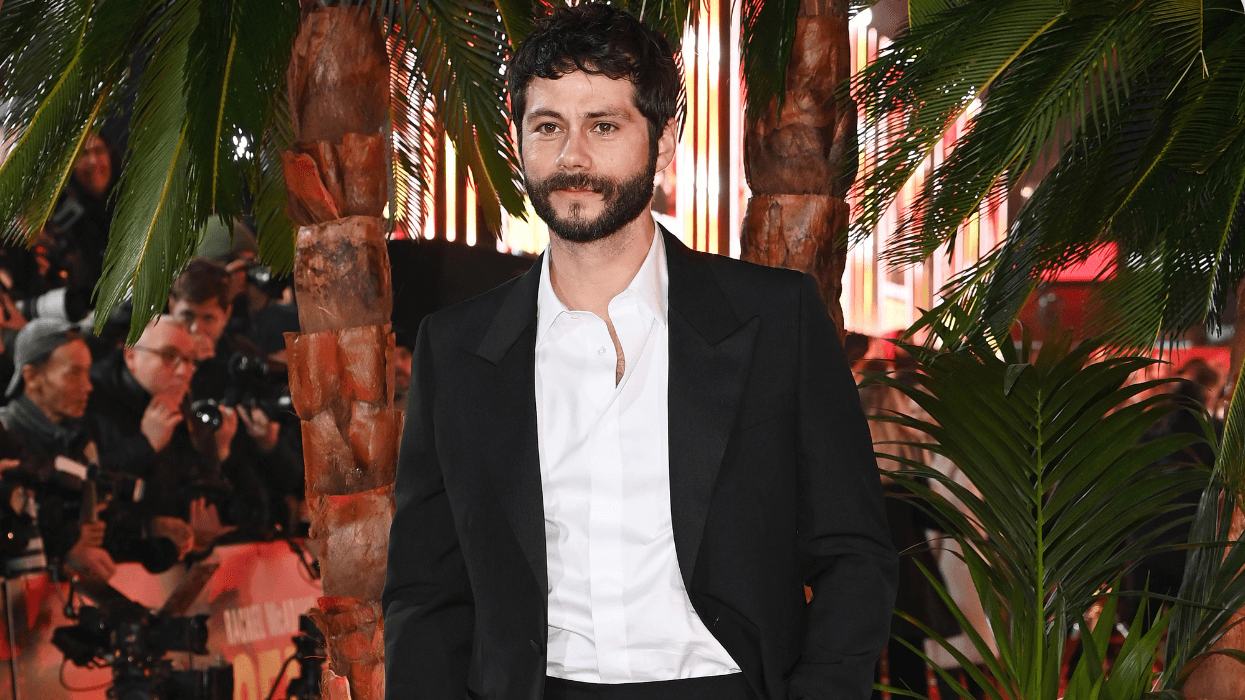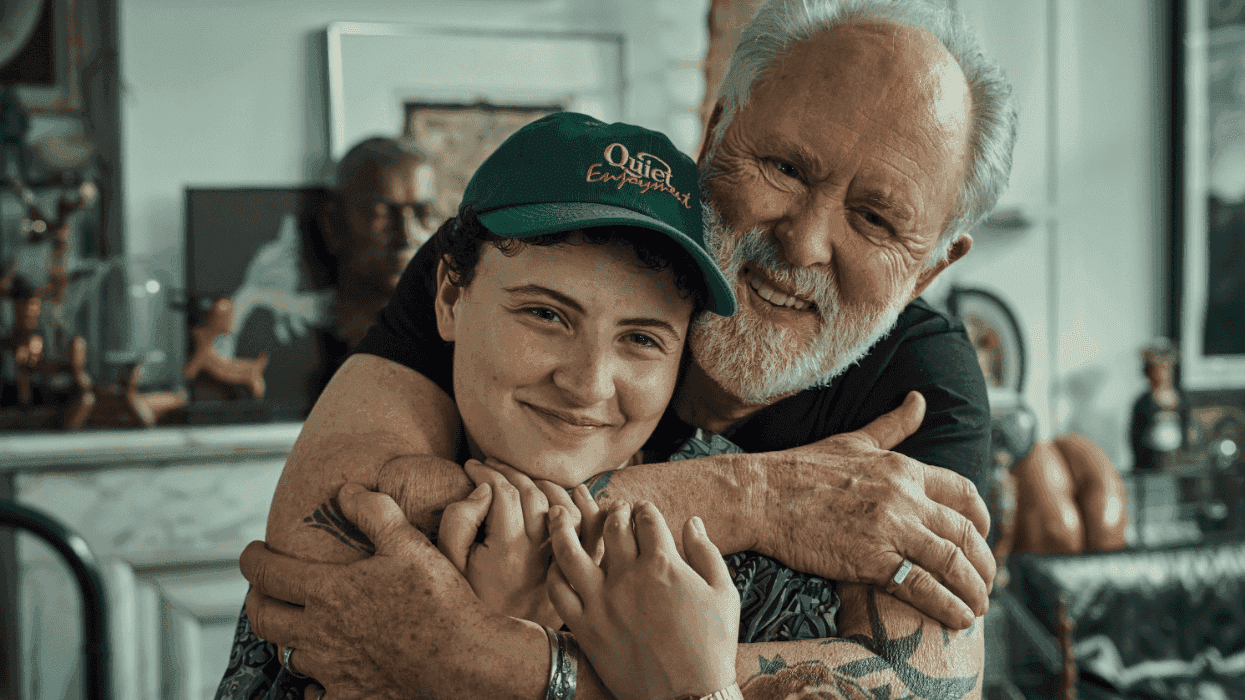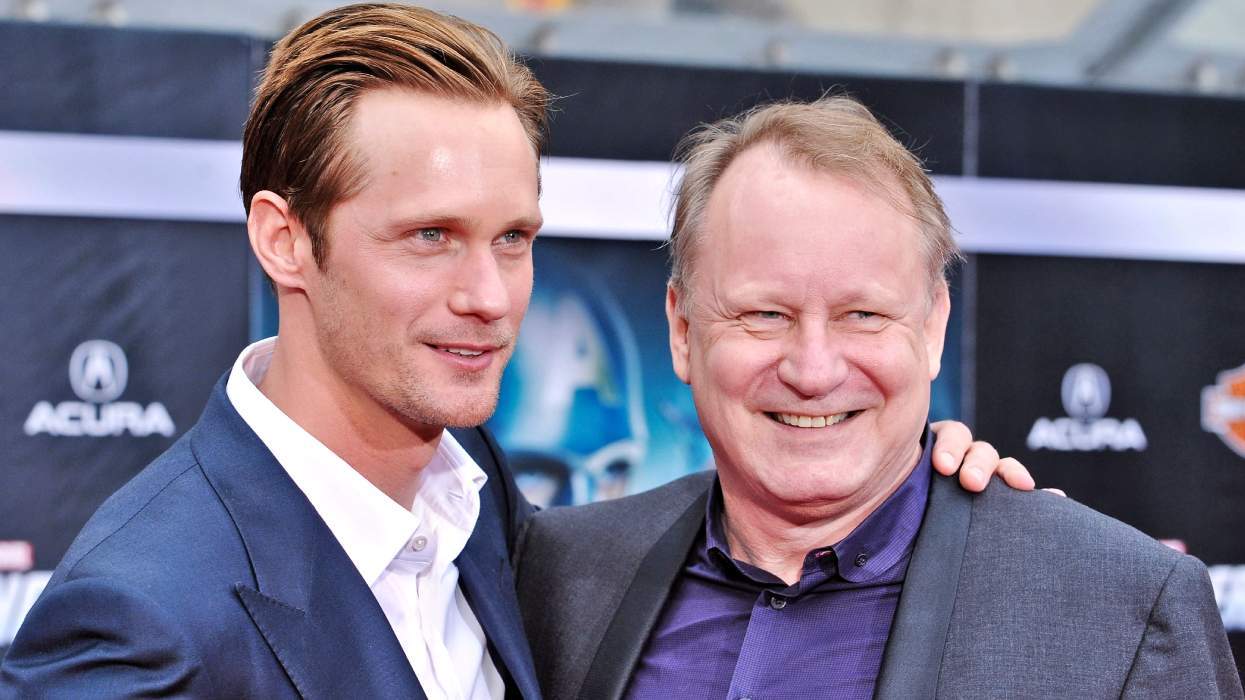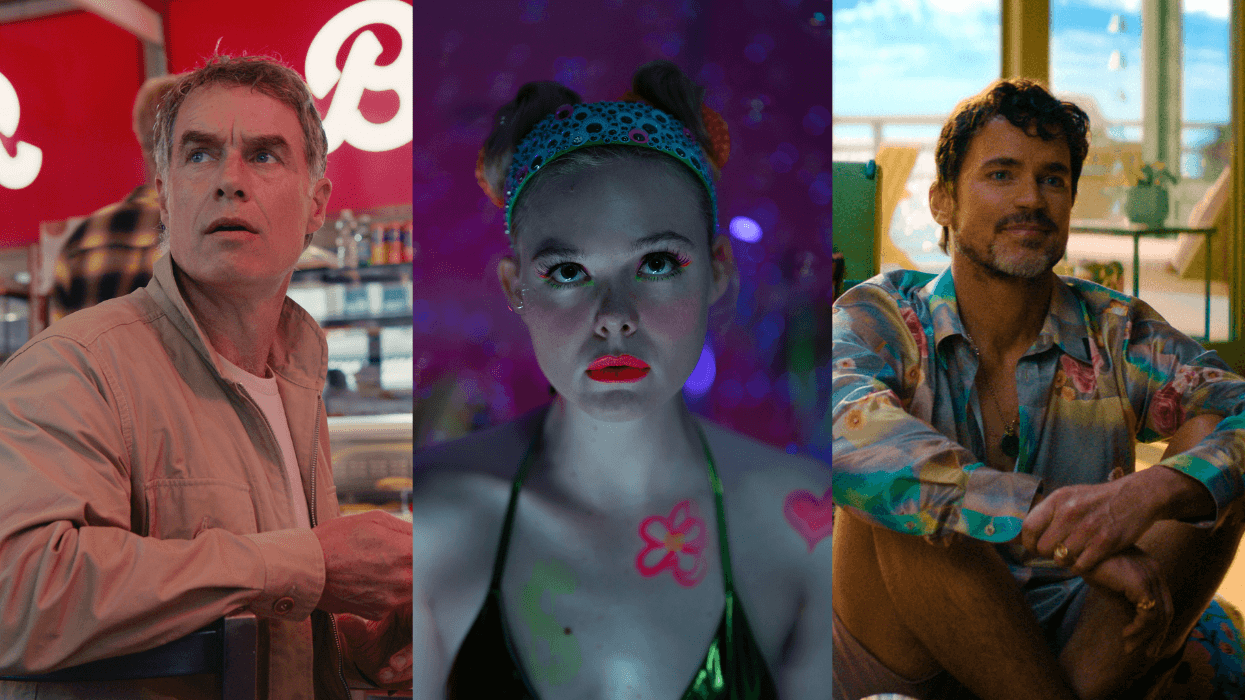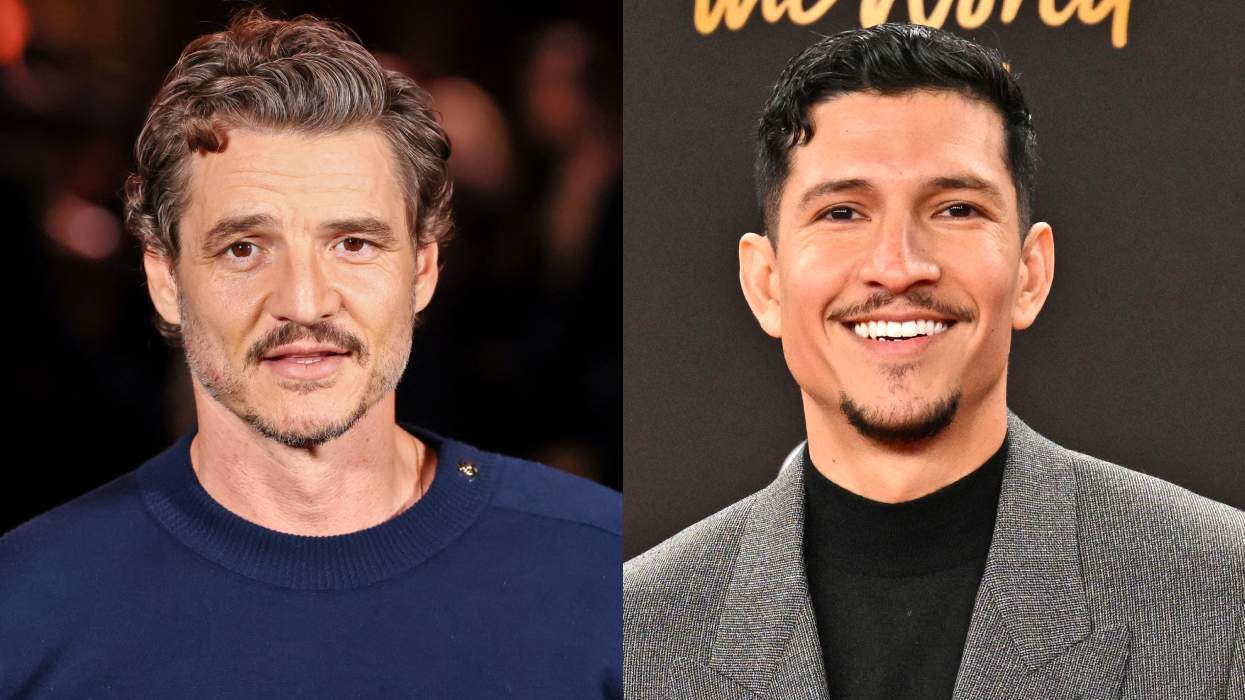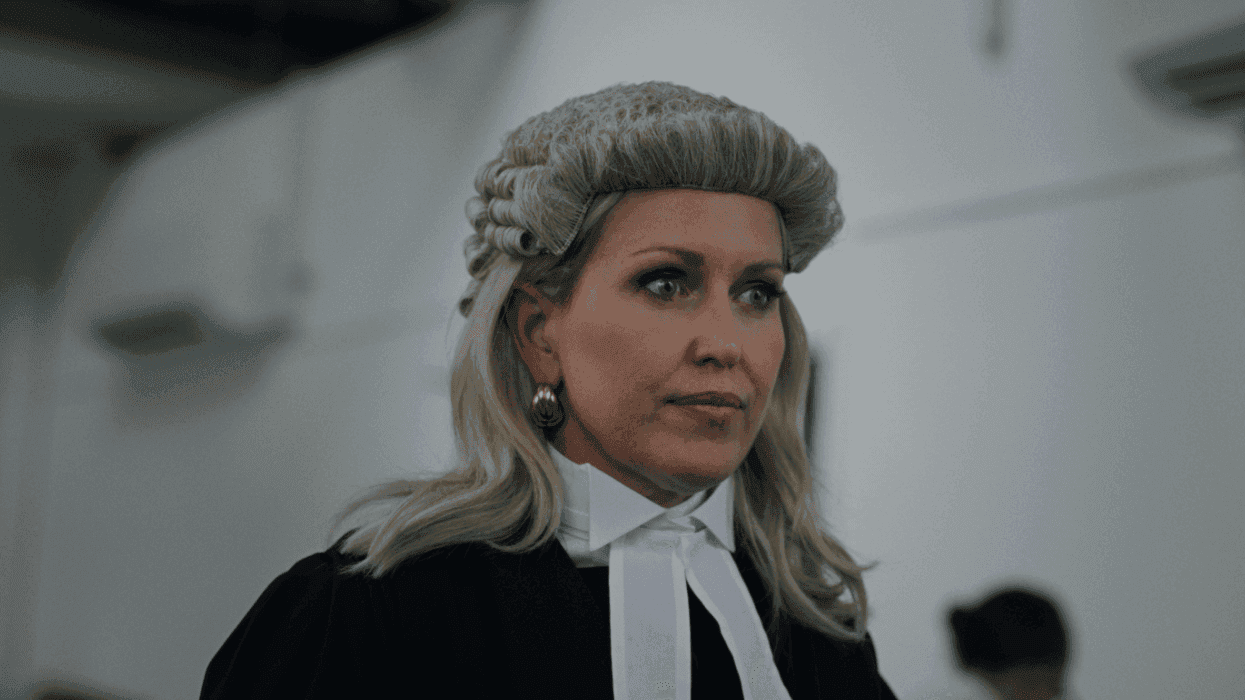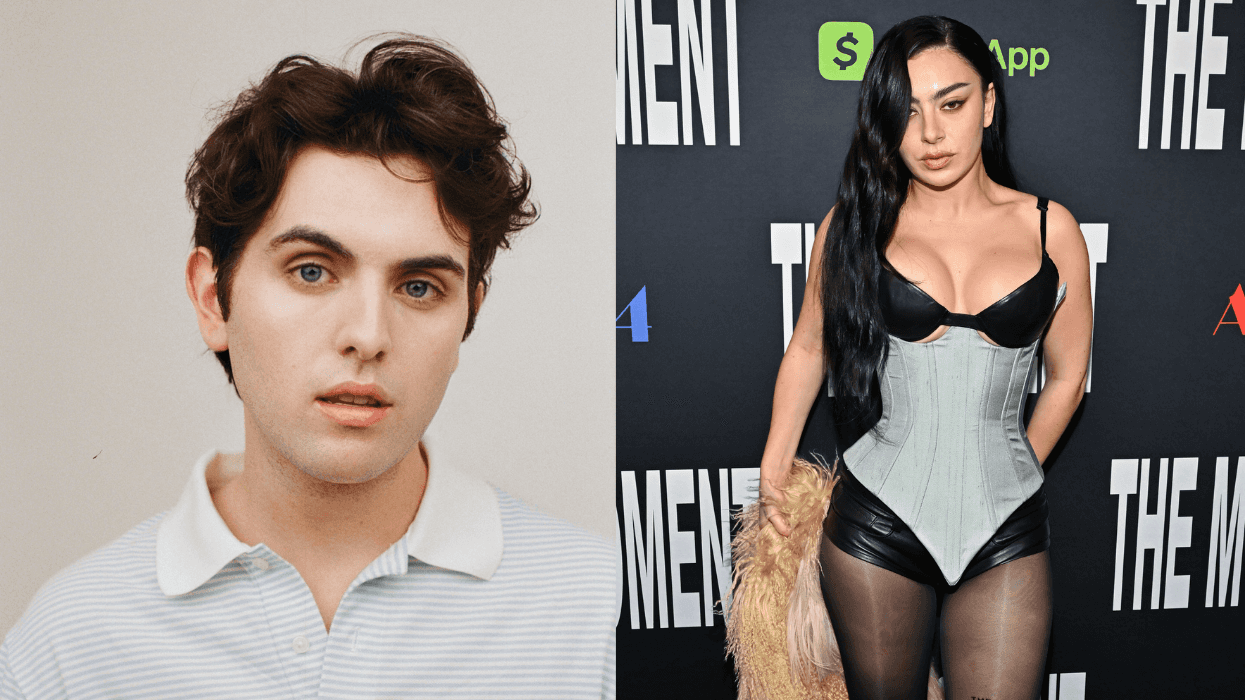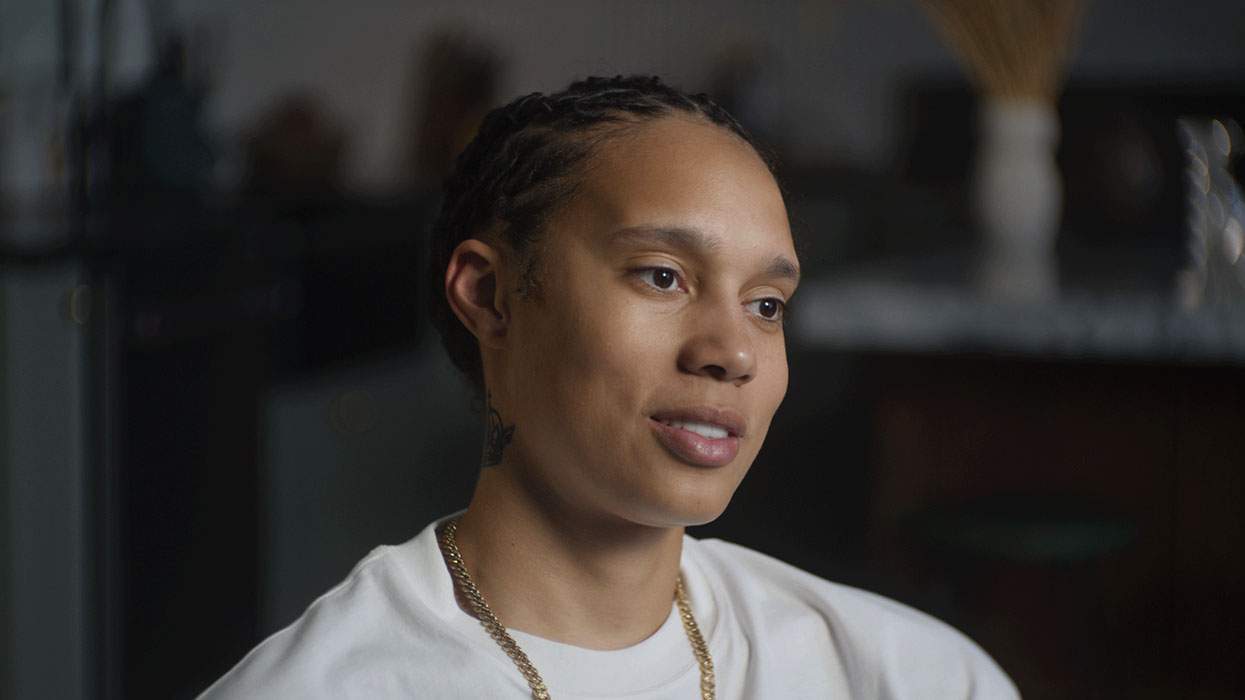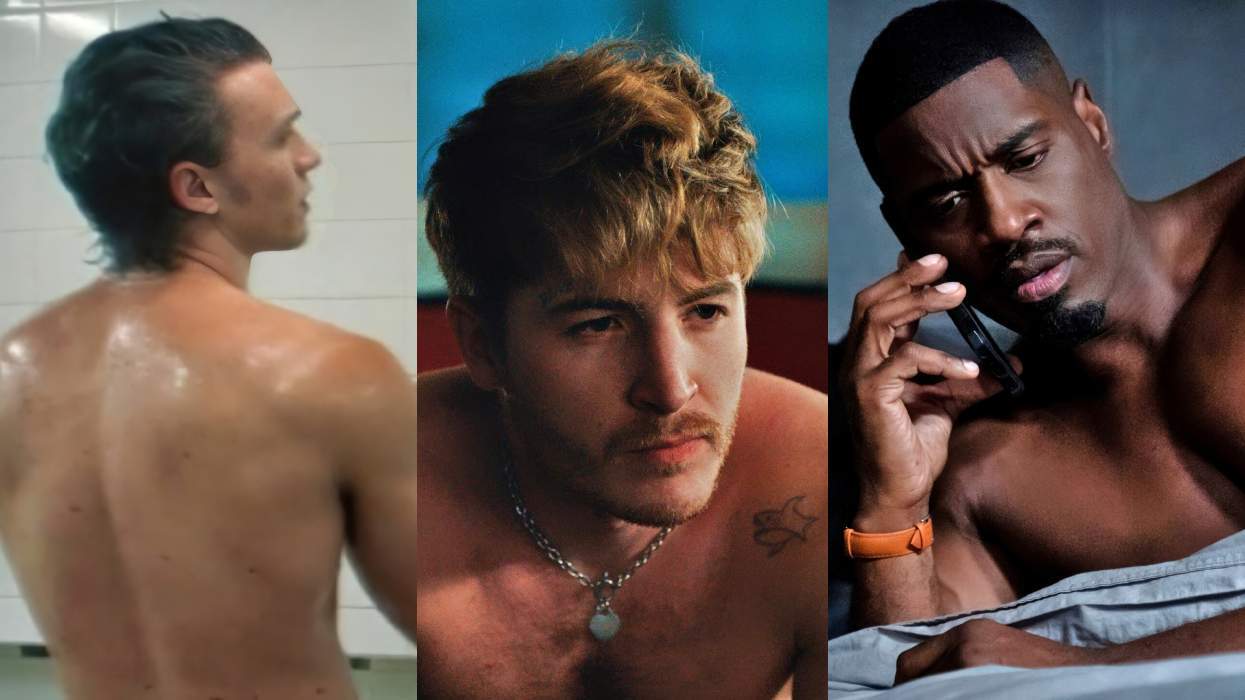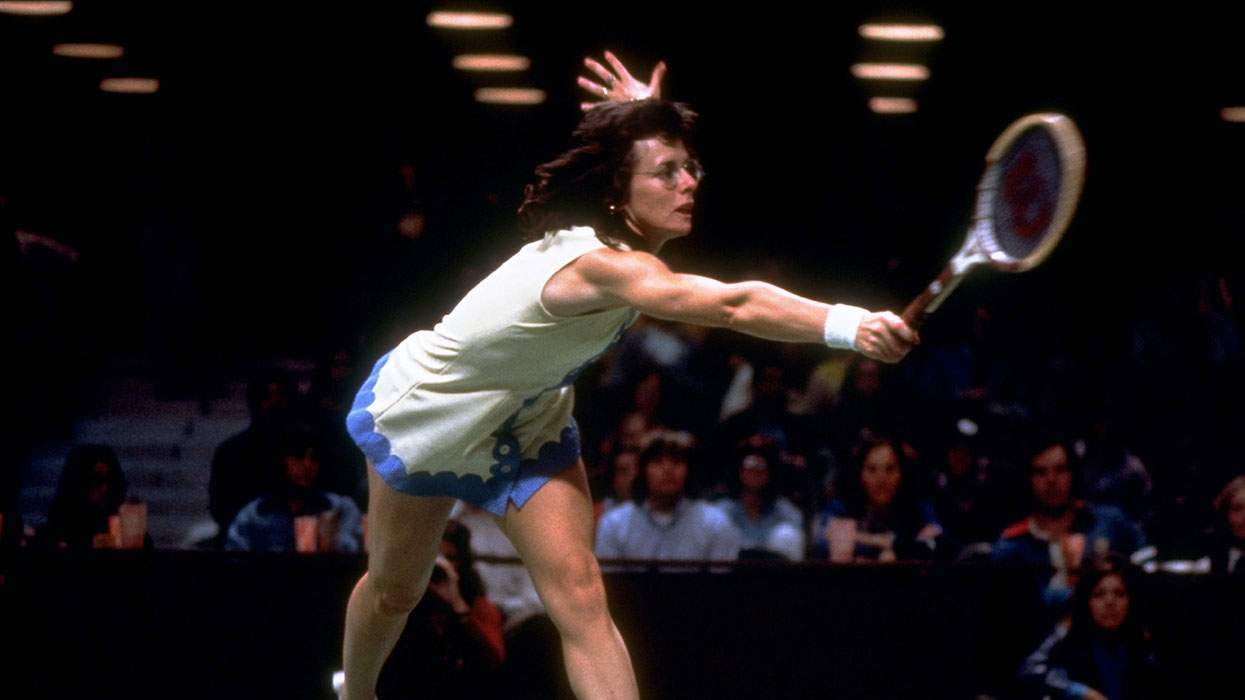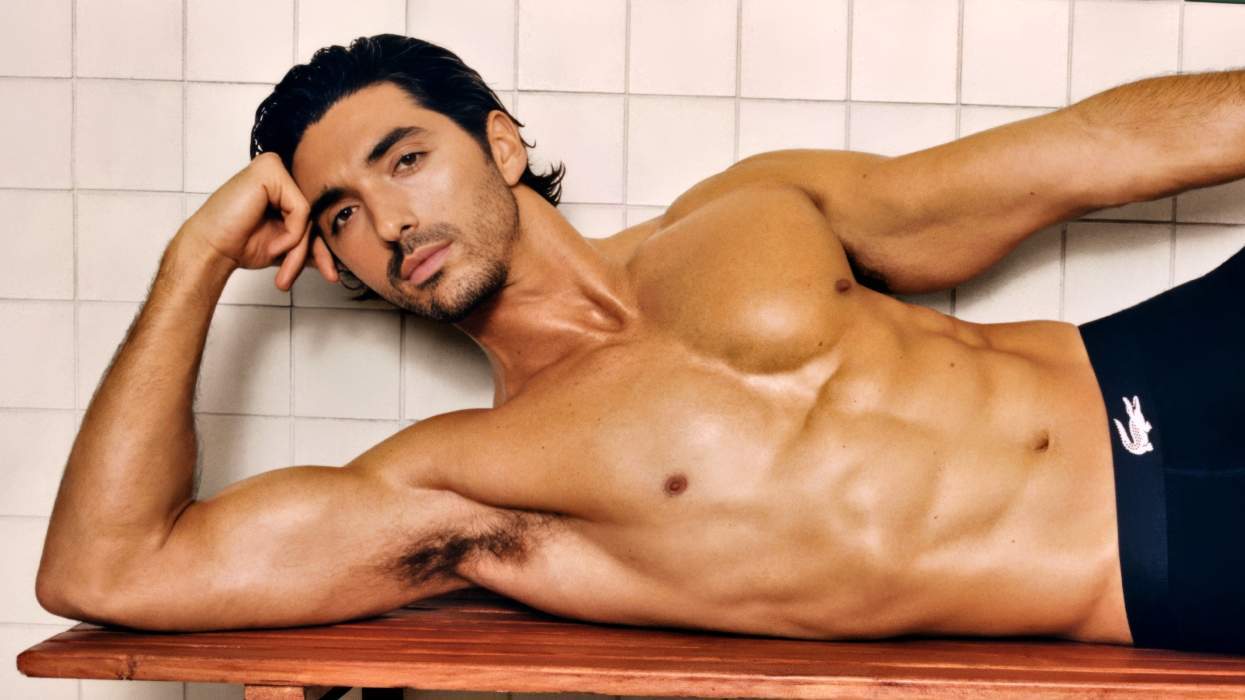It began with a letter.
Tim Travers Hawkins, a British filmmaker based in Brooklyn, had written to Chelsea Manning, just as he'd done to many political prisoners before her. He'd read reports that the former intelligence analyst, then-imprisoned for disclosing hundreds of thousands of government documents to WikiLeaks, had been put in solitary confinement for having "prohibited" books in her cell and felt motivated to reach out in support.
"Learning that Chelsea had been put in solitary confinement because of unauthorized books really touched me," Hawkins tells Out. "I wrote to her and didn't expect a reply. Then a few months later, I got one."
Hawkins and Manning soon struck up a correspondence, eventually conceiving of a documentary project to bring the latter's experience in prison to the outside world's attention. There was just one problem: The prison wouldn't permit him to film her or record any of their phone calls -- obstacles that any documentary filmmaker would likely find insurmountable.
All that changed when, months into filming, then-President Barack Obama commuted Manning's 35-year prison sentence, thrusting the once unfilmable whistleblower into the most heavily scrutinized period of her life. Hawkins continued filming the documentary, following his subject from prison to the spotlight and, unexpectedly, back to jail once more.
The result is XY Chelsea, which premieres May 1 at the Tribeca Film Festival in New York City and June 7 on Showtime. Out had the opportunity to speak to Hawkins about the project prior to its Tribeca premiere. Our conversation has been lightly edited and condensed for clarity.
OUT: What made you want to make a documentary about Chelsea Manning?
TIM TRAVERS HAWKINS: It started about two and a half years ago when I got my first letter from Chelsea. We started communicating through letters and discussed the idea of a documentary. I'd previously made a short film about asylum seekers held in detention centers where we were denied filming access, so we used animation to bring our recorded phone interviews to life. I thought that might work, but Chelsea said they don't allow phone calls to be recorded. It was a literally unfilmable situation. The more I thought about her condition, the more I realized that the prison making Chelsea's incarceration unfilmable was an act of violence in itself. I just felt like I really had to make this happen -- not just in spite of the fact that she was invisible but because of it. It was a real driving force.
That's wild to hear because the movie literally starts with Chelsea getting out of prison, something you would've had no idea was going to happen when you started filming. What was that like, realizing that your movie was suddenly a different movie?
That's the nature of documentary -- one thing I love about it that also gives me a lot of sleepless nights [laughs]. There are a lot of elements from [before Obama commuted Chelsea's sentence] that were put in the film as flashbacks. We basically almost had a finished film back in the beginning of 2017, but then of course the commutation happened, which meant we had to change everything. That's, of course, a wonderful thing to have happened -- all part of the wonderful unpredictability of documentary filmmaking.
Since the narrative kept changing in real time, how did you know when the story you were telling was "over"?
I don't think Chelsea's story is over, by any means, even though the film is. The arc that we captured shows a story of progression and, in many tragic senses, a return to where we were in the beginning -- it begins with Chelsea in prison, and it ends with Chelsea in prison. What began as an amazing challenge to depict something that had been rendered unfilmable by political forces evolved over time to be about how Chelsea, now hyper-exposed out there, maintained her voice with the noise of the world all around her. The commutation was not a fairy tale ending. I think the film shows that.
The film does a really good job at conveying the impact that prison had on Chelsea's mental health and how that trauma followed her to the outside world. You see, at many points, how overwhelming it is for her to be so exposed and hyper-visible post-commutation. Did you ever worry that filming her was adding to that stress?
As a filmmaker, it's certainly something you have to be absolutely aware of, and we did have certain things in place to make sure that there was some kind of aftercare for her. Her support group and I communicated very closely from the beginning of filming. There were many times we did not film to make sure she was OK.
What do you hope viewers take away from XY Chelsea?
I fundamentally believe that Chelsea did the right thing, but I hope that, however viewers feel about what she did, they come away with the sense that we need strong, rebellious people right now to stand up to power structures -- that people like that are absolutely fundamental to us knowing what's going on in the world. I also hope they get the sense that you can't act alone against these power structures. We really need to support resistance to these structures collectively. Otherwise, we'll get crushed.



